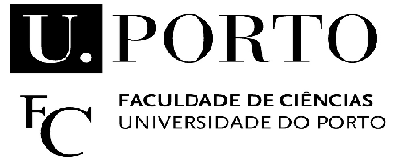Bolsa para Mestre - CRYOSAT
Candidaturas de 02/10/2020 a 16/10/2020
Bolsa de Investigação para Mestre (M/F)
Encontra-se aberto concurso para a atribuição de uma bolsa de investigação para Mestre no âmbito do Projeto com a referência CRYOSAT- CRYOSAT-2 Ground Segment, IPF/COP Maintenance and Evolution Support, [CCN#5]: Extension of the IPF/COP Maintenance and Evolution Support and upgrades of the Cryosat Ice Processor (Baseline D), C2-CN-ACS-ESL-5353, financiado pela ESA (European Space Agency), nas seguintes condições:
Área Científica: Engenharia Geográfica
Requisitos de admissão:
Podem candidatar-se a esta bolsa:
-
Detentores de mestrado em Engenharia Geográfica, ou áreas afins
-
Candidatos em Doutoramento em Engenharia Geográfica (comprovada no envio da documentação de candidatura)
Condições preferenciais:
-
Sólida formação em Deteção Remota/Altimetria por Satélite
-
Sólida formação em programação e domínio de linguagens tais como Fortran, Python e Matlab
-
Experiência em investigação
-
Bom conhecimento de Inglês técnico
Requisitos de contratação: caso o grau tenha sido conferido por instituição de ensino superior estrangeira, o mesmo tem de obedecer ao disposto no Decreto-Lei n.º 66/2018, devendo quaisquer formalidades aí estabelecidas estar cumpridas até à data da contração.
Plano de trabalhos:
• Title:
Retrieval algorithms for the wet tropospheric correction of satellite altimeter observations over homogeneous and transition surfaces
Objectives:
The focus of this study is the improvement of the wet tropospheric correction of satellite altimeter observations over homogeneous and transition surfaces of particular relevance in satellite altimetry, by developing algorithms for the retrieval of such corrections, particularly over coastal, ice and inland water regions. The associated correction challenges in these regions are the main motivation for this study.
Considering this major goal, the following main topics shall be addressed:
-
Develop methodologies to identify classes of homogenous surfaces, for which stable algorithms for the wet tropospheric correction (WTC) retrieval can be implemented.
-
Identify potential additional parameters (to the measured brightness temperature, TB) to account for the influence of the surface in the Microwave Radiometer (MWR) measured TB.
-
Identify suitable databases for establishing the relationship between the measured TB and the WTC for various homogeneous surface types.
-
Exploit the use of SLSTR (Sea and Land Surface Temperature Instrument) and OLCI (Ocean and Land Colour Instrument) measurements, on Sentinel-3, collocated with the SRAL (SAR Radar Altimeter) and MWR observations, both to map surface type and to extract additional parameters to use in the WTC retrieval.
-
Develop algorithms for WTC retrieval over ice regions.
-
Develop algorithms for WTC retrieval over water/land transition surfaces such as coastal zones and lake borders, with focus on the separation of the signals coming from sea/water and from land.
-
Exploit different methods to assess and validate the retrieved WTC.
Throughout the study, the obtained outcomes shall be submitted for publication in peer reviewed journals, the final PhD thesis being a collection of published papers.
Ler mais (see more)
>>

Last update: 2022-07-18 I Page created on: 2024-04-25 at 06:13:29 | Acceptable Use Policy | Data Protection Policy | Complaint Portal